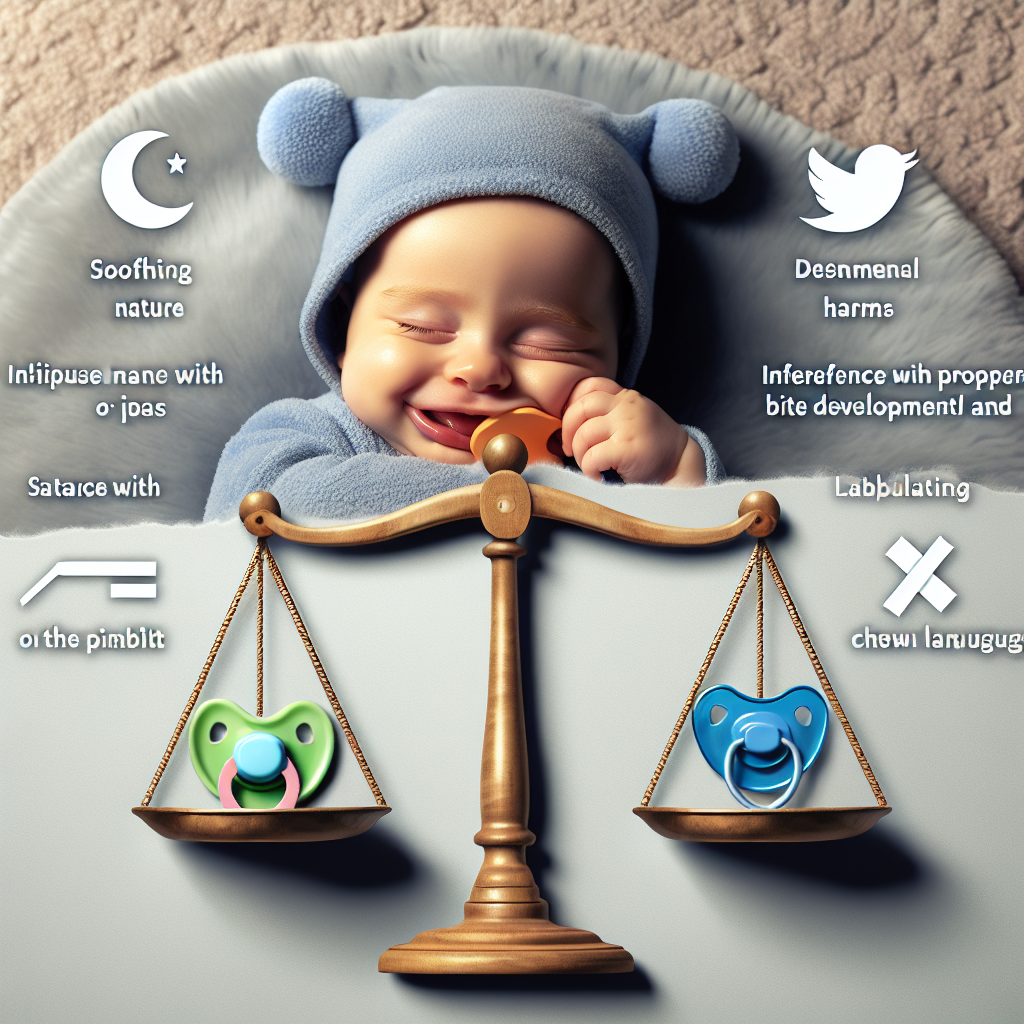Pacifier: Good or Bad for Baby Development?
Parents are often faced with the dilemma of choosing the best method to soothe and feed their baby. At the heart of the debate is the use of the teat. Does the pacifier have a significant impact on the child's development or is it just a temporary solution for the little one's comfort? This article aims to explore the essential stages of baby development and the effect that pacifier use can have on them.
Somatic Development of the Baby
Somatic development, that is, the physical development of the child in the first years of life, is a complex and rapid process. Each stage of this period is essential for healthy and harmonious growth. in this context, the teat could play a controversial role. On the one hand, it can help calm the baby's sucking reflex, a natural and instinctive behavior. On the other hand, there are concerns about possible deformities of the palate and teeth or interference with natural breastfeeding.
Motor Development
When it comes to motor development, which involves muscle coordination and strength, almost all of a baby's activities play a role in stimulating it. Sucking - whether it's from the mother's breast, a pacifier or a bottle - is one of the first and most fundamental motor movements a baby learns. Pacifier use, if done in moderation, should not have a negative impact on the development of the orofacial muscles. However, it is crucial to monitor suckling patterns and ensure that they do not become excessive and replace other important forms of nutrition.
Language development
Language development is closely related to the development of orofacial motor skills. The articulation of sounds and subsequently speaking are facilitated by the strong and well-coordinated muscles of the mouth and tongue. Here comes the teat controversy once again. Some experts claim that prolonged use of a pacifier can delay speech and cause problems articulating sounds, as the muscles involved in sucking may be overused or improperly developed. However, these risks can be minimized if pacifier use is limited and balanced with sufficient parent-child vocal interactions.
Emotional and Social Development
Emotion and socialization begin to develop from a very early age. Babies quickly learn to recognize their parents' faces and communicate needs through crying or other signals. Although the pacifier can act as an effective soother, some child development specialists argue that it may inhibit a baby's ability to learn more mature ways of self-soothing and emotional expression. Striking a balance between pacifier comfort and the development of self-soothing skills will be crucial to your baby's long-term emotional health.
Impact on Breastfeeding
Breastfeeding is often promoted as the best option for baby nutrition and for creating a strong bond between mother and child. In this landscape, the appearance of the teat can create confusion for sucking or decrease the time spent at the breast, thus affecting the production of breast milk. It is vital for parents to understand how to use the pacifier without disrupting the natural process of breastfeeding, if this is the course they wish to take.
Tips for Parents
With all of these potential concerns, it's important to note that every child is unique, and what works for one may not work for another. Experts recommend that parents observe how their own baby responds to pacifier use and adjust accordingly. It is also important to consult with a pediatrician or child development specialist for personalized advice.
Conclusion
In conclusion, the pacifier is neither categorically good nor bad for the development of the baby. It is essential that parents are informed and aware of how pacifier use can impact the development of various aspects of a child's growth. With careful monitoring and prudent use, pacifiers can be a useful tool in a child's early years. To ensure healthy development, it is key to strike a balance and continue to prioritize adequate nutrition, interaction with parents, and the development of the child's emotional and social independence. If you found information in this reading that you found useful, we encourage you to visit our online store for more parenting and baby resources or subscribe to our newsletter for regular updates and tips.














































































































































